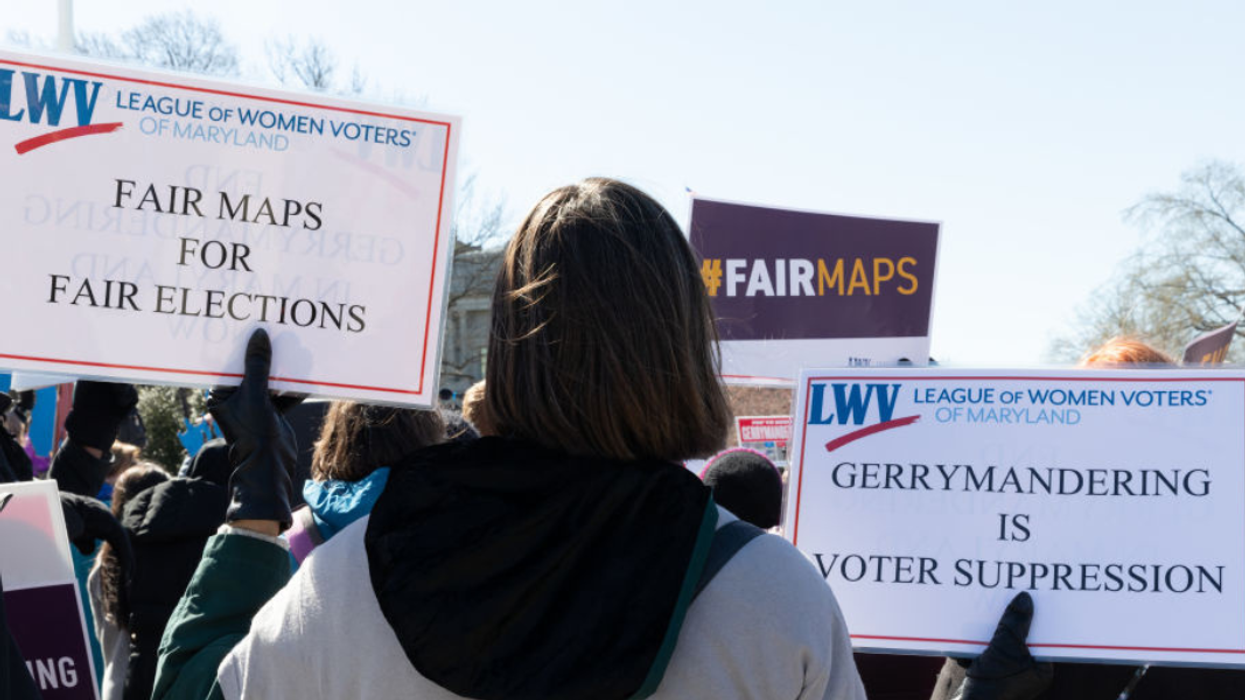O’Brien serves as Policy Director at RepresentUs. He is an attorney focusing on legislation and policy issues.
This Saturday, January 21st, marks the thirteenth anniversary of the famous Citizens United v. Federal Election Commission Supreme Court decision. This year, we’re not going to celebrate in the traditional way: sending unlimited corporate contributions to super PACs. Instead, we’re marking the date by warning about another Supreme Court case that also has the potential to radically reshape American politics: Moore v. Harper.
The effects of Citizens United were immediate and long-lasting. The nonpartisan organization Open Secrets found that in the two decades before Citizens United, non-party outside groups spent $750 million on campaigns. In the one decade since Citizens United, that number exploded to $4.5 billion – a six-fold increase.
While activists and good government groups raised alarms about Citizens United at the time, American politics has changed in ways few could have imagined. Once unthinkable amounts of political spending are now routine. According to the same Open Secrets report, as of 2020, eight of the ten most expensive Senate elections and nine of the ten most expensive House elections in American history have happened after Citizens United. For better or worse (and it’s definitely worse), we’re now living in a post- Citizens United world.
But if you thought post- Citizens United was a seismic shift, the post- Moore world could be even bigger. Where Citizens United opened the floodgates to big money in politics, Moore v. Harper could all but eliminate checks and balances at the state level.
The specifics of the Moore v. Harper case center around gerrymandering. During the 2021 redistricting process, the North Carolina Legislature passed a congressional map that, according to the Princeton Gerrymandering Project’s Redistricting Report Card, was extremely gerrymandered. Voters brought a lawsuit challenging the gerrymandered map, and the North Carolina Supreme Court found it violated several provisions of the state constitution. Ordinarily, this would be the final word because state courts are the highest authority when it comes to state constitutions.
But in an unusual move, the North Carolina General Assembly appealed the state supreme court’s decision to the U.S. Supreme Court. They rely on a fringe interpretation of the U.S. Constitution called the independent state legislature theory (ISL). Under extreme versions of ISL, state legislatures could have unchecked power at the state level over federal elections, unrestrained by state courts and constitutions. That means that when it comes to federal elections, regular checks and balances in the lawmaking process could be at risk – including state court review, ballot initiatives, and gubernatorial vetoes.
The fate of North Carolina’s congressional districts is the immediate issue at hand. But the eventual impact is even more disturbing. If the Court decides to recognize ISL, decades of precedent could be upended. State legislatures could ignore state constitutions when it comes to federal elections – and there’d be nothing the courts could do to stop them. Voters might not be able to reform federal elections by ballot measure. Independent redistricting commissions might not be an option to fight congressional gerrymandering.
It’s difficult to count the sheer number of election laws and practices that could be at risk under ISL. But many parts of the voting process that you probably take for granted are at risk. As our States of Chaos report details, every state’s election laws would be vulnerable, including policies that touch on nearly every aspect of American democracy. Many people don’t realize, for example, that the right to a secret ballot does not exist in the U.S. Constitution and is primarily guaranteed through state constitutions. If, as ISL proponents insist, state legislatures can’t be bound by state constitutions when it comes to federal elections, that right will only exist at the whim of politicians.
For voters, the impact could be profound. You might live in a congressional district drawn by a redistricting commission. You might be a person who counts on voting absentee if you’re sick or out of town on Election Day, or simply because you prefer to do it that way. Perhaps you vote for members of Congress using Ranked Choice Voting, or by choosing one of the two candidates that have advanced from an open, nonpartisan primary election. However you cast your ballot, you’re confident that who you voted for is a secret. A state legislature could wipe all of that away if the Supreme Court recognizes ISL.
Citizens United opened the floodgates of dark money into our elections, but Moore could fundamentally change the structure of federal elections. Some say that we shouldn’t worry about Moore because many of the things ISL threatens are settled law – already decided by the Supreme Court. That might be wishful thinking, since it ignores the reality that many of the issues in Citizens United had been settled law too. That settled law didn’t stop the Court from overturning its own precedents in that case. Nothing can stop the Court from upending years of precedent and practice if it wants to side with special interests over democracy and politicians over voters.
Thirteen years later, many Americans rightly point to Citizens United as a dangerous turn for our democracy. Thirteen years from now, we may say the same thing about Moore v. Harper.



















Trump & Hegseth gave Mark Kelly a huge 2028 gift